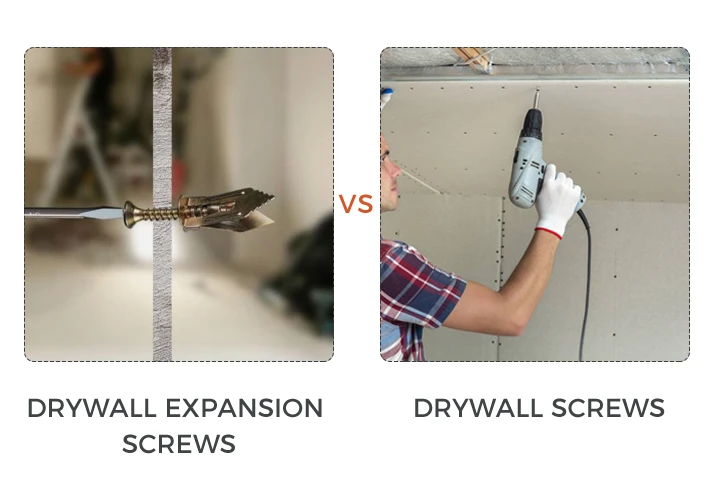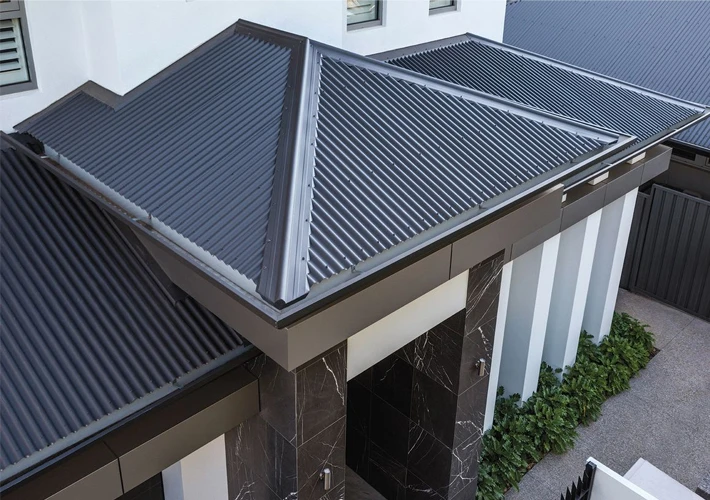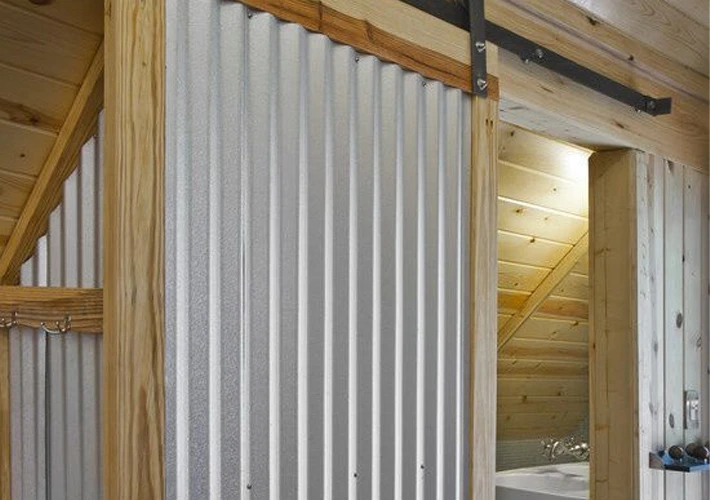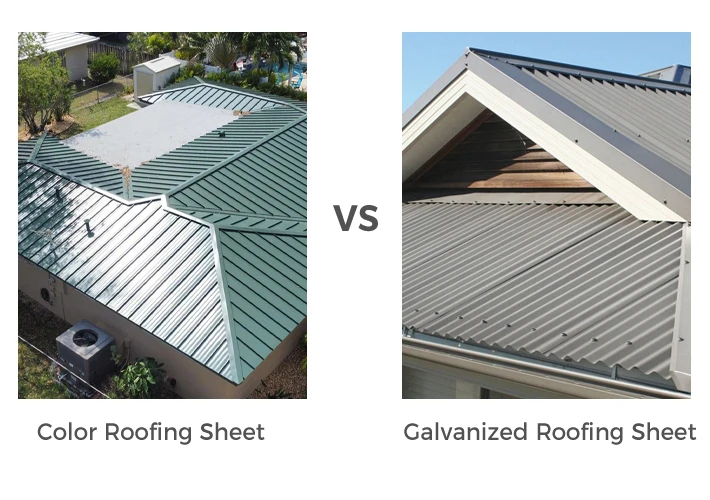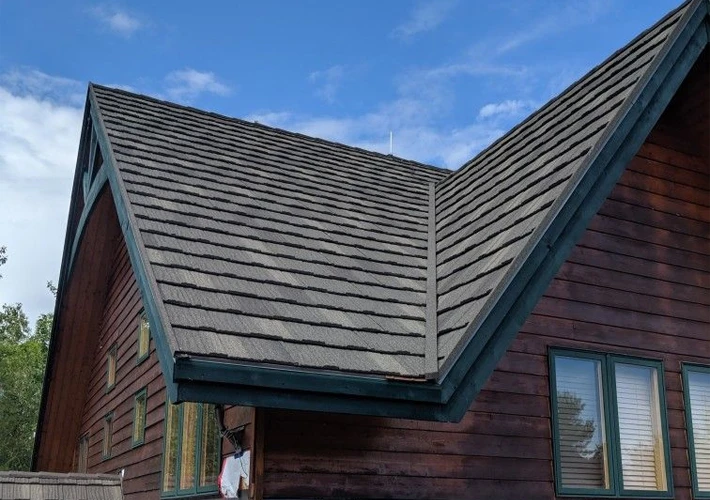Introduction
Drywall is one of the most commonly used materials in modern construction and interior decoration. Whether for residential projects, commercial buildings, or large-scale infrastructure, drywall offers versatility, ease of installation, and cost efficiency. However, the performance of drywall largely depends not only on the panels themselves but also on the fasteners used to secure them.
Among the most widely discussed fastening solutions are drywall expansion screws and regular drywall screws. While both are designed to fix drywall sheets to wood studs, metal studs, or masonry, they have significant differences in design, application, load-bearing capacity, and installation techniques.
For contractors, wholesalers, and importers, choosing the right type of screw is crucial because it directly impacts project durability, labor efficiency, and overall costs. In this article, we will provide a comprehensive comparison between drywall expansion screws and regular drywall screws to help you make an informed choice.
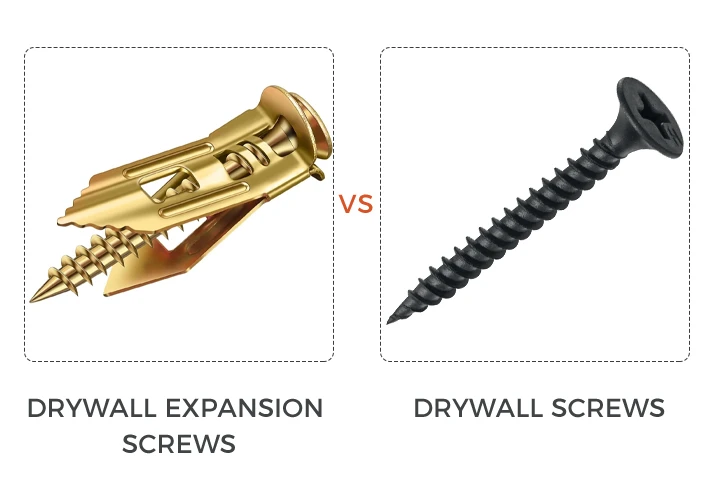
What Are Regular Drywall Screws?
Regular drywall screws are threaded fasteners made specifically for attaching drywall sheets to studs or joists. They are typically made of hardened steel and coated with black phosphate for corrosion resistance.
Main Features of Regular Drywall Screws
- Material: Hardened steel, sometimes stainless steel for special projects.
- Finish: Black phosphate coating for corrosion protection.
- Head Types: Bugle head (most common), flat head.
- Thread Types:
- Coarse-thread drywall screws: Best for attaching drywall to wood studs.
- Fine-thread drywall screws: Best for attaching drywall to metal studs.
- Sizes: Common lengths range from 25mm (1”) to 75mm (3”), depending on drywall thickness.
Advantages of Regular Drywall Screws
- Affordable and widely available.
- Easy installation with drywall screw guns.
- Strong grip for wood and light-gauge steel studs.
- Smooth finish due to bugle head design.
Limitations of Regular Drywall Screws
- Not suitable for hollow walls without studs.
- Lower pull-out resistance compared to expansion screws.
- Can loosen over time if the substrate is weak or brittle.
What Are Drywall Expansion Screws?
Drywall expansion screws, sometimes called self-drilling anchors or wall plug screws, are fastening systems that include both a screw and an anchor mechanism. They are designed for applications where drywall needs to be fixed into hollow spaces, weak substrates, or areas without direct access to wood or metal studs.
Main Features of Drywall Expansion Screws
- Design: Usually consist of a metal or plastic anchor that expands when the screw is driven in.
- Material: Steel screws combined with plastic, nylon, or metal expansion plugs.
- Functionality: The expansion mechanism increases surface contact, enhancing holding strength.
- Applications: Ideal for hanging heavy loads such as shelves, televisions, cabinets, and wall-mounted appliances.
Advantages of Drywall Expansion Screws
- High load-bearing capacity.
- Secure fastening even in hollow drywall or weak masonry.
- Prevents screw pull-out, ensuring long-term stability.
- Suitable for heavy-duty applications.
Limitations of Drywall Expansion Screws
- Higher cost compared to regular drywall screws.
- Requires more installation time and precision.
- Over-tightening may damage the expansion mechanism.
- Not always necessary for lightweight drywall installation.
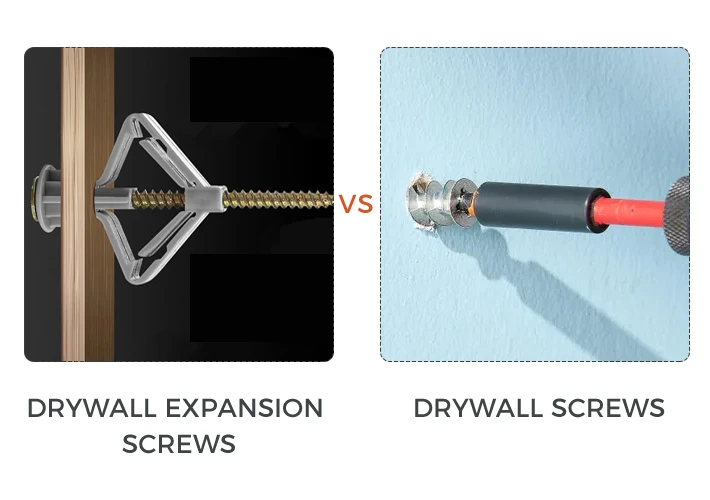
Key Differences Between Drywall Expansion Screws and Regular Drywall Screws
| Feature | Regular Drywall Screws | Drywall Expansion Screws |
|---|---|---|
| Design | Simple threaded screw | Screw with expansion anchor mechanism |
| Material | Hardened steel | Steel + plastic/nylon/metal anchor |
| Load Capacity | Medium (suitable for standard drywall attachment) | High (suitable for heavy-duty loads) |
| Applications | Attaching drywall to wood/metal studs | Hanging shelves, cabinets, TVs, fixtures |
| Installation | Fast and simple | Slower, requires precision |
| Cost | Low | Higher |
| Best Use Case | General drywall installation | Heavy load-bearing or hollow wall installations |
Applications in Modern Construction
Where to Use Regular Drywall Screws
- Residential drywall installation.
- Office partitions with metal studs.
- Ceiling boards and wall linings.
- Large-scale projects requiring cost efficiency.
Where to Use Drywall Expansion Screws
- Mounting heavy decorative panels.
- Installing shelves and cabinets on hollow walls.
- Fixing wall-mounted TVs and appliances.
- Applications where stud locations are unavailable.
Cost Considerations for Importers and Contractors
For B2B clients, price and efficiency are as important as performance.
- Regular drywall screws are cost-effective for bulk projects. They are usually priced per kilogram or per box, with 1000–5000 pieces per package.
- Expansion drywall screws cost more per unit but save money in terms of preventing wall failures, callbacks, and repair work.
Importers often choose a combination of both: regular drywall screws for standard installations and expansion screws for specialized applications.
Installation Techniques
Installing Regular Drywall Screws
- Position the drywall sheet.
- Use a screw gun or drill with a drywall bit.
- Drive the screw until the bugle head is flush with the surface.
- Avoid overdriving, which may tear the drywall paper.
Installing Drywall Expansion Screws
- Drill a pilot hole (depending on anchor type).
- Insert the expansion anchor into the drywall.
- Drive the screw into the anchor until it expands.
- Ensure tight but not over-tightened fit.
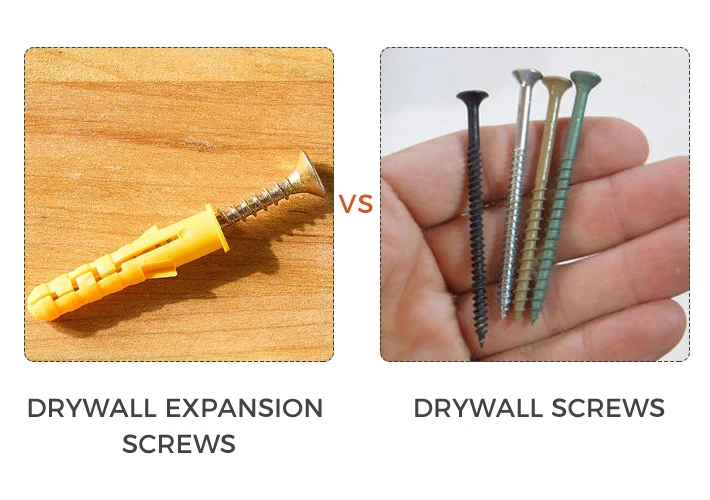
Choosing the Right Screw: Factors to Consider
Load Requirement – For lightweight drywall, regular screws suffice; for heavy fixtures, expansion screws are necessary.
Wall Type – For stud-based walls, use regular screws; for hollow walls, expansion screws are better.
Project Scale – For bulk construction, regular screws reduce costs; for high-end projects, expansion screws add reliability.
Budget – Expansion screws are costlier but reduce risk of wall damage in the long run.
Durability Expectations – Expansion screws provide stronger, long-term fastening in weak substrates.
Future Trends in Drywall Fastening Solutions
With the growing demand for lightweight construction materials and modular building systems, the market for drywall screws is expected to expand. Innovations such as:
- Corrosion-resistant coatings for humid environments.
- Eco-friendly materials such as recyclable nylon anchors.
- Quick-installation expansion mechanisms for labor efficiency.
Contractors and wholesalers should expect increased demand for high-strength drywall expansion screws in modern urban construction, particularly in Europe and North America.
Conclusion: Which to Choose?
- Choose regular drywall screws if you are installing drywall sheets on studs in standard residential or commercial projects. They are cost-effective, efficient, and widely available.
- Choose drywall expansion screws if you need to mount heavy objects, work on hollow walls, or require higher load-bearing capacity.
For importers and wholesalers, offering both product types ensures that you can meet the needs of diverse customers across construction, decoration, and renovation industries.
As a professional building materials manufacturer and supplier in China, we provide a full range of drywall screws, expansion screws, and other fastening systems. With strict quality control, competitive prices, and strong export experience, we are your reliable partner for bulk orders worldwide.
👉 If you are looking for high-quality drywall screws or expansion screws, feel free to contact us for wholesale inquiries and product catalogs.
